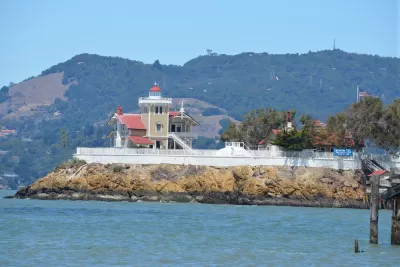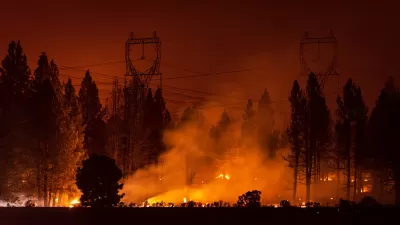Extreme heat, rising seas, and other impacts of climate change are turning deadly faster than predicted, California officials warn.

In recent months, officials have attributed the spate of destructive fires plaguing California to climate change. Now, the state’s latest Climate Assessment confirms that the impacts of greenhouse gas emissions on weather, water, and public health are appearing earlier than anticipated.
By 2050, the new assessment warns, rising temperatures due to emissions could cause up to 11,300 more deaths annually. “Heat-health events”—heat waves that are not deadly but still pose health risks to much of the population—are likely to become a regular occurrence in the summer. These health impacts could cost the state up to $50 billion a year.
The ocean, too, is now expected to rise faster and higher than previously believed—up to 9 feet by midcentury. For the first time, the assessment provides localized projections of sea level rise, finding that coastal cities in San Diego and Orange Counties are most at risk.
Water supply and fire danger are among other urgent concerns identified in the report, which also offers guidance on local adaptation planning.

Planetizen Federal Action Tracker
A weekly monitor of how Trump’s orders and actions are impacting planners and planning in America.

Restaurant Patios Were a Pandemic Win — Why Were They so Hard to Keep?
Social distancing requirements and changes in travel patterns prompted cities to pilot new uses for street and sidewalk space. Then it got complicated.

Map: Where Senate Republicans Want to Sell Your Public Lands
For public land advocates, the Senate Republicans’ proposal to sell millions of acres of public land in the West is “the biggest fight of their careers.”

Maui's Vacation Rental Debate Turns Ugly
Verbal attacks, misinformation campaigns and fistfights plague a high-stakes debate to convert thousands of vacation rentals into long-term housing.

San Francisco Suspends Traffic Calming Amidst Record Deaths
Citing “a challenging fiscal landscape,” the city will cease the program on the heels of 42 traffic deaths, including 24 pedestrians.

California Homeless Arrests, Citations Spike After Ruling
An investigation reveals that anti-homeless actions increased up to 500% after Grants Pass v. Johnson — even in cities claiming no policy change.
Urban Design for Planners 1: Software Tools
This six-course series explores essential urban design concepts using open source software and equips planners with the tools they need to participate fully in the urban design process.
Planning for Universal Design
Learn the tools for implementing Universal Design in planning regulations.
Heyer Gruel & Associates PA
JM Goldson LLC
Custer County Colorado
City of Camden Redevelopment Agency
City of Astoria
Transportation Research & Education Center (TREC) at Portland State University
Camden Redevelopment Agency
City of Claremont
Municipality of Princeton (NJ)





























